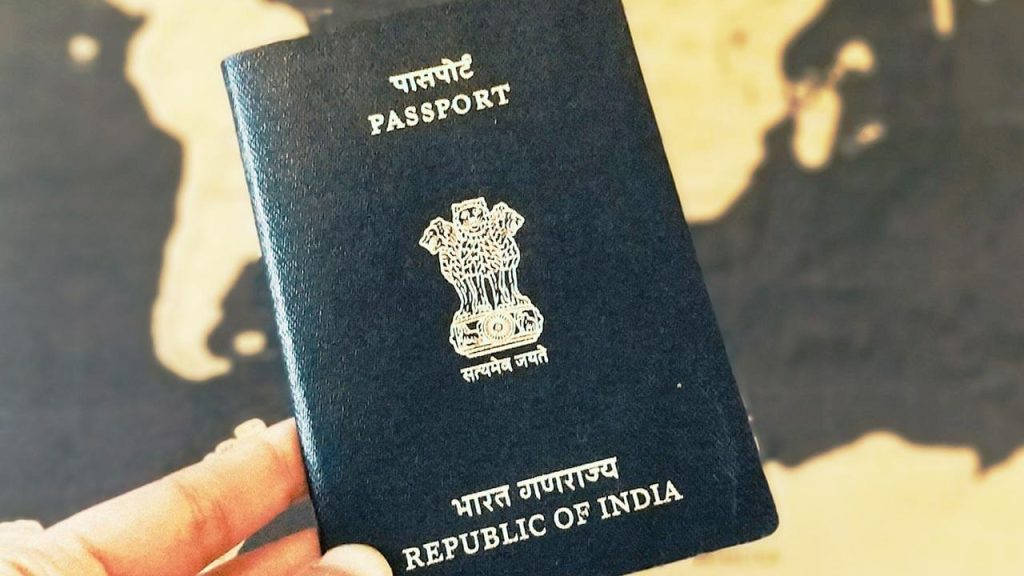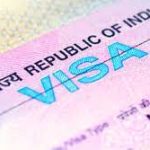“Embarking on a journey to the vibrant and culturally-rich land of India is an exciting prospect for German citizens. But before you delve into the mesmerizing sights, aromatic flavors, and enchanting traditions, there are crucial things you need to know about applying for an Indian visa. In this comprehensive guide, we unveil the top tips and insider secrets that will not only simplify your application process but also ensure a seamless travel experience. So join us as we unravel the mysteries surrounding Indian visas and unlock a world of unforgettable adventures!” Indian Visa for German Citizens
Introduction to Indian Visa for German Citizens:
Traveling to India as a German citizen may seem like a daunting task, especially when it comes to obtaining the necessary visa. However, with the right information and preparation, applying for an Indian visa can be a smooth and hassle-free process. In this section, we will provide you with all the essential details that you need to know before applying for an Indian visa as a German citizen.
Visa Types:
The first step towards getting an Indian visa is determining which type of visa you require. For German citizens, there are three main types of visas available – tourist, business, and medical visas.
1. Tourist Visa: This is suitable for those who wish to visit India for tourism purposes such as sightseeing or visiting friends and family. The tourist visa is valid for up to 90 days and can be obtained either through an e-visa or by submitting your application at the Embassy/Consulate General of India.
2. Business Visa: If you plan on traveling to India for business-related activities such as attending conferences or meetings, then a business visa would be appropriate. This type of visa allows multiple entries and has a validity period of up to one year. Indian Visa for Greek Citizens
3. Medical Visa: For individuals seeking medical treatment in India, a medical visa would be required. This type of visa allows multiple entries and has a validity period of up to one year.
Types of Visas Available for German Citizens
As a German citizen planning to travel to India, it is important to understand the different types of visas that are available for you. The type of visa you require will depend on your purpose of visit and duration of stay in India. Here are the main types of visas available for German citizens:
1. Tourist Visa:
If you are planning to visit India for tourism purposes such as sightseeing, visiting friends or family, or participating in cultural events, then a tourist visa is the most suitable option for you. This visa allows you to stay in India for up to 180 days and can be obtained through the online e-Visa application process.
2. Business Visa:
For German citizens traveling to India for business purposes such as attending meetings, conferences, or exploring business opportunities, a business visa is required. This visa also allows multiple entries into India within its validity period of up to 1 year. It can be applied through the Indian embassy/consulate or through the online e-Visa facility.
3. Employment Visa:
If you have been offered employment in an Indian company or organization, then an employment visa is required before entering India. This visa allows multiple entries and has a validity period based on the length of your contract with your employer.
4. Student Visa:
German citizens who wish to study in an educational institution in India need a student visa before entering the country.
Application Process and Requirements
The application process and requirements for obtaining an Indian visa as a German citizen can seem daunting at first, but with the right information and guidance, it can be a smooth and stress-free experience. In this section, we will take you through the step-by-step process of applying for an Indian visa as well as the necessary requirements to ensure a successful application.
Step 1: Determine your Visa Type
The first step in the application process is to determine which type of Indian visa you need. There are different categories of visas depending on the purpose of your visit, such as tourist visa, business visa, employment visa, and student visa. It is essential to choose the correct category as each has its specific requirements and conditions.
Step 2: Gather Required Documents
Once you have determined your visa type, gather all the necessary documents required for your application. These may include:
– A valid passport with at least six months’ validity remaining and two blank pages.
– Two recent passport-sized photographs.
– Completed online application form with accurate personal details.
– Supporting documents such as flight tickets, hotel reservations, or invitation letters (depending on the purpose of your visit).
– Proof of financial stability (bank statements or credit card statements).
– Employment or education-related documents (if applicable).
Common Mistakes to Avoid During the Application Process
When it comes to applying for an Indian visa as a German citizen, there are several common mistakes that applicants make during the application process. These mistakes can lead to delays or even rejection of the visa application, causing inconvenience and frustration for the applicant. To ensure a smooth and successful visa application, it is important to be aware of these common mistakes and avoid them.
1. Not checking the eligibility criteria: One of the most common mistakes made by applicants is not checking the eligibility criteria before applying for an Indian visa. Each type of visa has specific requirements that must be met in order to be eligible. For example, if you are planning to visit India as a tourist, you need to have a valid passport with at least six months validity and proof of sufficient funds for your trip. It is important to carefully read through all the requirements before starting your application process.
2. Incomplete or incorrect information: Another common mistake is providing incomplete or incorrect information on the visa application form. This can lead to delays in processing or even rejection of your application. It is crucial to double-check all the information entered on the form before submitting it. Make sure that all names, dates, and other details are accurate and match your supporting documents.
3. Applying for the wrong type of visa: Many applicants make this mistake due to a lack of understanding about different types of visas available for travel to India.
Tips for a Smooth Visa Application Experience
Applying for a visa can be a daunting and stressful process, especially if you are not familiar with the procedures and requirements. To help make your Indian visa application experience as smooth as possible, we have compiled some helpful tips to guide you through the process.
1. Familiarize yourself with the visa requirements: The first step in ensuring a smooth visa application experience is to familiarize yourself with the requirements for an Indian visa. As a German citizen, you will need to submit a valid passport, completed application form, recent passport-sized photographs, proof of travel arrangements and accommodations in India, and proof of financial stability.
2. Apply early: It is recommended to apply for your Indian visa at least 4 weeks before your intended date of travel. This will give you enough time to gather all the necessary documents and make any changes if needed.
3. Fill out the application form accurately: Make sure to fill out the application form accurately and provide all required information. Any discrepancies or incomplete information could lead to delays or rejection of your visa application.
4. Prepare supporting documents: Along with the basic requirements, it is important to prepare additional supporting documents that may strengthen your visa application. These can include a cover letter explaining your purpose of visit, employment letters or business registration documents (if self-employed), bank statements showing sufficient funds for travel expenses, and any other relevant documents.


